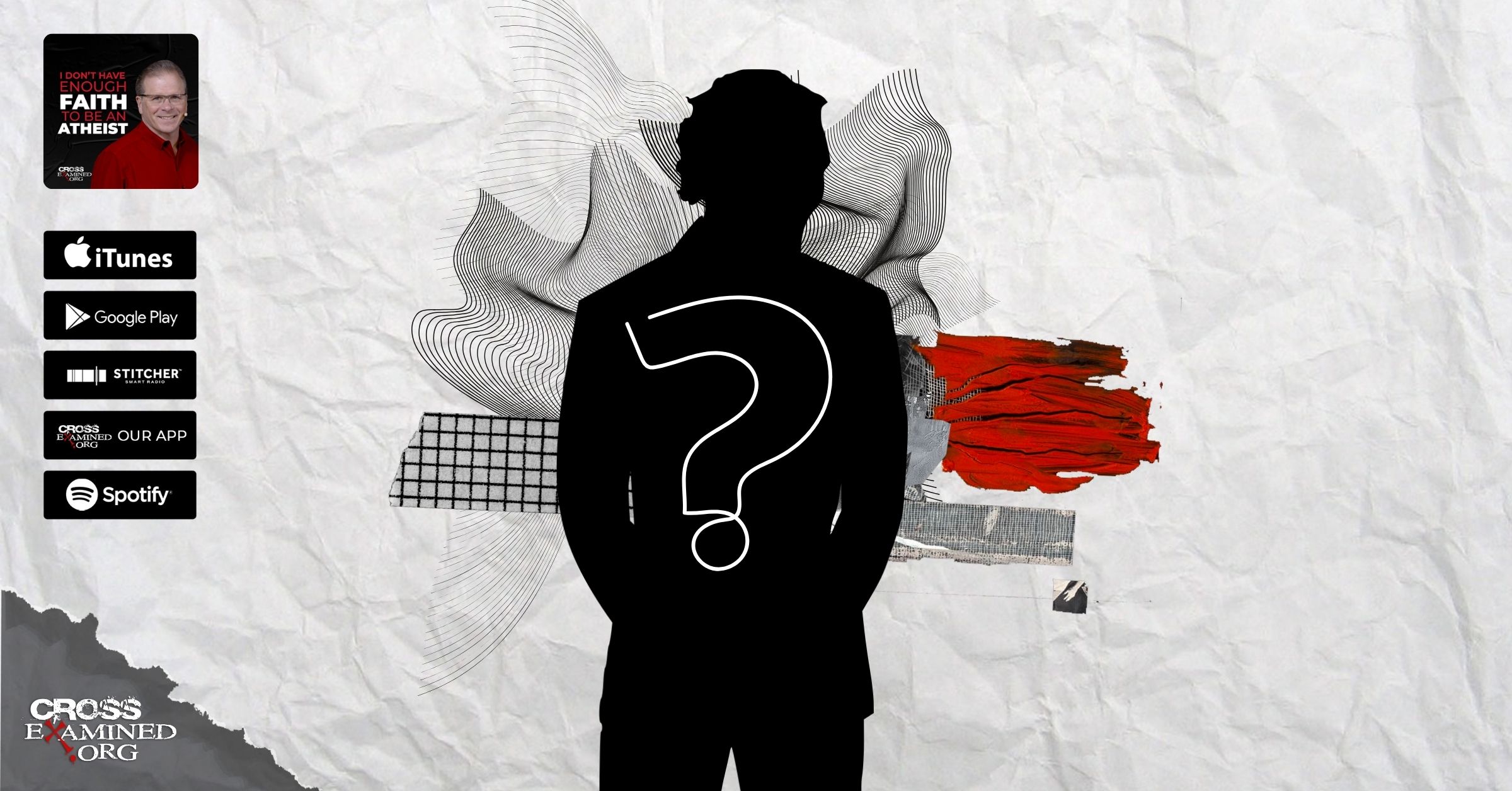Why God May Place More on Us Than We Can Endure
Have you ever heard the phrase, “God will not place more on you than you can endure.” Another way of phrasing the statement is by saying “God will not place more on you than you can bear.” Christians are known for such platitudes. These cliches are well-intentioned as they do not come from malice. Rather, they come from an attempt to condense Christian truths into short, memorable memes or Twitter-worthy statements. But is it true that God will not place more on us than we can bear/endure?
A careful reading of Scripture shows this not to be the case. For instance, Paul writes to the Church of Corinth,
“We don’t want you to be unaware, brothers and sisters, of our affliction that took place in Asia. We were completely overwhelmed—beyond our strength—so that we even despaired of life itself. 9 Indeed, we felt that we had received the sentence of death, so that we would not trust in ourselves but in God who raises the dead. 10 He has delivered us from such a terrible death, and he will deliver us. We have put our hope in him that he will deliver us again 11 while you join in helping us by your prayers. Then many will give thanks on our behalf for the gift that came to us through the prayers of many” (2 Cor. 1:8-11).[1]
Did you catch the phrase in verse 8, “We were completely overwhelmed—beyond our strength.” From the passage of Scripture, it can be adduced that Paul and his companions were allowed to be tested in a manner that was beyond their ability to handle. This counters the thought behind the aforementioned platitude. It appears that the benevolent God of creation does allow his children to endure hardships that exceed their ability to stand for three reasons.
Affliction Provides the Ability to Comfort (1:3-4, 6-7)
Back in verses 3-4, Paul writes, “Blessed be the God and Father of our Lord Jesus Christ, the Father of mercies and the God of all comfort. 4 He comforts us in all our affliction, so that we may be able to comfort those who are in any kind of affliction, through the comfort we ourselves receive from God” (2 Cor. 1:3-4). He continues by saying, “If we are afflicted, it is for your comfort and salvation. If we are comforted, it is for your comfort, which produces in you patient endurance of the same sufferings that we suffer. 7 And our hope for you is firm, because we know that as you share in the sufferings, so you will also share in the comfort” (2 Cor. 1:6-7). Paul says that their afflictions serve as an example to others. By their suffering and affliction, they are better able to minister to the suffering and afflicted.
Paul denotes a truth that was foreign to the Greco-Roman world in that suffering is not always a bad thing. David Garland writes,
“Suffering comes for anyone who preaches the gospel in a world twisted by sin and roused by hostility to God. If God’s apostle experienced so much distress in carrying out his commission, then we can see that God does not promise prosperity or instant gratification even to the most devoted of Christ’s followers.[2]
Roman philosophy presented a different view of their gods. Roman philosopher Cicero believed that the gods produced health, wealth, and security, certainly not affliction.[3] Oddly, many modern Christian circles resemble Roman philosophy more than Christian theology.
Since God is the epitome of the Good, he holds good reasons for permitting afflictions, even those that overwhelm us. Later, the faithful child of God will realize that they were only able to minister to those in need because of, not despite, the afflictions they were allowed to endure. The late Dr. Randy Kilby used to say at Fruitland Baptist Bible Institute, “You have to get under the spout where the glory comes out.” By that, he noted that the child of God can only spiritually give what they have been given. Thus, the comfort they receive from God during times of affliction can be used to minister to others in need.
Affliction Portrays God’s Strength (1:5)
Furthermore, Paul holds that overwhelming affliction demonstrates God’s strength working through the believer. Paul writes, “For just as the sufferings of Christ overflow to us, so also through Christ our comfort overflows” (1:5). God may allow a person to experience overwhelming problems so that God’s strength is shown through that person. Paul held out hope that as the sufferings of Christ overflow to us, so also the blessings of God will overflow. Paul noted to the Roman Church that “I consider that the sufferings of this present time are not worth comparing with the glory that is going to be revealed in us” (Rom. 8:18). That is to say, faithfully enduring hardships while remaining faithful to Christ produces a wealth of rewards that will be fully demonstrated in heaven.
It is often thought that the most important Christians in heaven are those who have the fattest wallets, the fanciest suits, and the biggest homes. However, God’s kingdom is an upside-down kingdom as fully illustrated in Jesus’s Parable of the Rich Man and Lazarus (Luke 16:19-31). On the one hand, the story holds that the man faithful man named Lazarus—though he was poor, downtrodden, and abused by the world—would be greatly rewarded in eternity. On the other hand, a rich man who had everything that money could buy but who neither had any love and compassion for his fellow man nor God landed in the most precarious of eternal circumstances.
But why did a good God design the world in this manner? Paul later answers the question in 2 Corinthians. In chapter 12, he describes an instance where he pleaded with the Lord to remove a thorn in his flesh. He begged the Lord three times to remove his affliction. However, the Lord responded by saying, “My grace is sufficient for you, for my power is perfected in weakness” (2 Cor. 12:9). Consider why God chose Israel. The Hebrew people were not mighty like the Egyptians or Philistines. However, through Israel, God’s power was exhibited to the world (Gen. 12:1-3). Bethlehem Ephrathah was chosen as the birthplace of the Messiah even though it was a small and minute town on the edge of nowhere (Micah 5:2). As the prophet Zechariah noted, “‘Not by strength or by might, but by my Spirit,’ says the Lord of Armies” (Zech. 4:6). Overwhelming affliction may be used by God to demonstrate his power through his vessel to others as an evangelistic tool.
Affliction Promotes Divine Trust (1:8-11)
Finally, affliction promotes divine faith and trust in the Sovereign God. Verse 9 is critical in understanding the passage. Paul denotes that “we felt that we had received the sentence of death, so that we would not trust in ourselves but in God who raises the dead” (1:9). If a person relied only on one’s strength, where is the need for faith in God? For example, with great practice, a person can become a pool shark. They can run the table on their adversaries. The person trusts in one’s skill set to help the person succeed in the game. However, overwhelming affliction creates a dire need to trust One higher. Since enduring hardships with trust in God produces the fruit of endurance, proven character, and divine hope (Rom. 5:30); it is actually a good thing that God allows us to face overwhelming situations where one’s trust must be placed in the God of creation. Certainly, it will not seem like a good thing while enduring the circumstance. But when God comes through as only God can, then trust is developed. Trust is crucial in healthy relationships. It must be remembered that through the process God is still working out everything for the good of those who love and trust him (Rom. 8:28). The endgame is the most important. Just as parents teach their children hard lessons to help them grow, so God must teach and train us to be the people he desires us to be by permitting hardships in our lives.
Conclusion
I must admit, I have used the phrase “God will not place more on us than we can bear” in my early days as a pastor. While at the time it was thought that the statement was positive and encouraging, it does not necessarily mesh with the teachings of Scripture. In some circles, it is believed that God only provides riches, health, and blessings for his children. Ironically, such belief systems find a home more in the camp of Roman philosophy rather than Christian philosophy. The goodness of the Anselmian God—that which nothing greater can be conceived—may require him to place his children in circumstances that are far beyond what they may endure to produce future blessings that would have only come through their trials of fire. Through the trials of Joseph, God led him to success in Egypt which would eventually be used to save his family and nation from certain doom as a famine ravaged through their land. Through the heartaches and despair of Job, he encountered God in a personal fashion and was eventually blessed double from what he previously owned. Through the horrific execution of Jesus, salvation was offered to the world, and death was defeated. With this in mind, the words of one of my mentors ring true. When facing overwhelming trials, rather than asking, “What are you doing to me, God?” we should rather ask, “What are you doing for me, God?” Therefore, rather than saying, “God will not place more on us than we can endure,” perhaps we would be better served in saying, “God will not place more on us than he can endure.”
Notes
[1] Unless otherwise noted, all quoted Scripture comes from the Christian Standard Bible (Nashville, TN: Holman, 2007, 2020).
[2] David E. Garland, 2 Corinthians, New American Commentary, vol. 29 (Nashville: B&H, 1999), 62.
[3] See Cicero, De Natura Deorum 3.36, 87.
Recommended resources related to the topic:
How to Interpret Your Bible by Dr. Frank Turek DVD Complete Series, INSTRUCTOR Study Guide, and STUDENT Study Guide
How Philosophy Can Help Your Theology by Richard Howe (MP3 Set), (mp4 Download Set), and (DVD Set)
__________________________________________________________________________________________________________________________________________________
Brian G. Chilton is the founder of BellatorChristi.com, the host of The Bellator Christi Podcast, and the author of the Layman’s Manual on Christian Apologetics. Brian is a Ph.D. Candidate of the Theology and Apologetics program at Liberty University. He received his Master of Divinity in Theology from Liberty University (with high distinction); his Bachelor of Science in Religious Studies and Philosophy from Gardner-Webb University (with honors); and received certification in Christian Apologetics from Biola University. Brian is enrolled in the Ph.D. program in Theology and Apologetics at Liberty University and is a member of the Evangelical Theological Society and the Evangelical Philosophical Society. Brian has served in pastoral ministry for nearly 20 years. He currently serves as a clinical chaplain.
Original Blog Source: https://cutt.ly/GY44dRU











